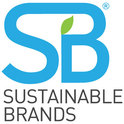Soap Recycling Creating Win-Win-Win for Hotels, Women, Developing Communities

It was 2014 and social entrepreneur Samir Lakhani was working on sustainable aquaculture projects in the villages of Northern Cambodia. Watching a mother wash and bathe her new baby using laundry powder rather than soap is a vision that has stayed with him to this day.
It was also the inspiration for his next business venture.
"I noticed that nobody seemed in good overall health — whether it was an infection that wouldn't go away or a child with diarrhea," he told Sustainable Brands in a recent interview.
Asking around the village, he encountered many other families who could only afford laundry powder and many more who had no soap at all, saying it was too expensive.
On returning to his hotel one evening, Lakhani noticed the housekeeper had replaced a bar of soap he had barely used — and he realized that if he could begin saving hotel soap, he could start saving lives.
With that, Eco-Soap Bank was born; today, it has grown to a thriving non-profit operating throughout 10 countries and employing more than 150 women. They collect leftover hotel soap, recycle it, sterilise it and then distribute it into their villages for everyone to access.
Clinics, schools and individuals that could not previously afford soap can now get it from the organization at half the market rate. And since there is no prevailing culture of handwashing in many of the communities Lakhani and his team serve, every distributed bar of soap is accompanied by hygiene education to ensure beneficiaries understand how proper hygiene can prevent disease and helps families save money on healthcare.
